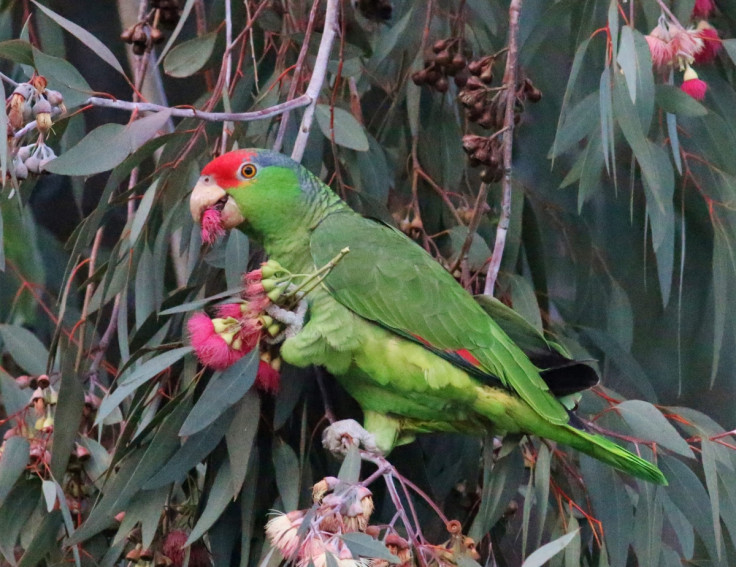Endangered parrot escapees thrive in the US as native Mexican habitat is destroyed

Escaped colonies of an endangered species of parrot, popular with pet owners, are thriving so well that populations in the US are starting to outnumber those in the wild in their native Mexico.
Groups of Mexican red-crowned parrots are making their homes in urban areas across California and Mexico, and experts believe that their success may be what saves the species from extinction. The last study in 1994 showed that there were between three and six thousand of the birds left in their natural Mexican habitats – down from an estimated 100,000 or more in the 1950s.
Researchers have just started to study the birds living in the US, amid a growing debate about whether imported animals should be listed under the Endangered Species Act. Colonies of the parrot exist in a wide strip of the country between Los Angeles and Brownsville, Texas, even while their native habitats in the tropics are destroyed by deforestation. Tens of thousands of them are believed to have escaped in the past 50 years, when their popularity as pets first surged.
The population is tentatively counted at nearly 1,000 in Texas, with more than 2,500 in California, where they are the most common of more than a dozen parrot species.
"Parrots in urban settings are of great interest to me," said Donald Brightsmith, a biologist at Texas A&M University. "I see these as kind of future insurance policies."
Brightsmith has been awarded a two-year grant from the Texan state government to properly study urban colonies of the parrots, and to ascertain whether they should be afforded proper protection. Their young are often poached for pets, while adult birds can be noisy in groups – attracting gunfire.
"It's more of an urban planning, landscape, ecology issue and not so much how do we protect an area of pristine nature," he said. He also wants to study the parrots' gene pool to see how genetically pure the American colonies are, to see if Mexican flocks can be replenished from American stock.
"We could have a free back-up stock in the US," Brightsmith said.
© Copyright IBTimes 2025. All rights reserved.






















